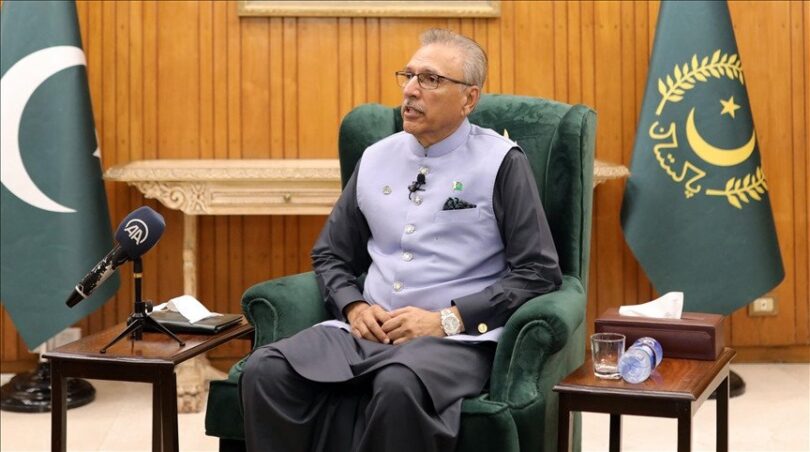President Dr. Arif Alvi has called for launching a consensus-based nationwide, comprehensive, and all-encompassing electricity, gas, and water conservation strategies to conserve precious national resources and divert them for the welfare and prosperity of the people. During a meeting on energy conservation at Aiwan-e-Sadr, President underscored that a comprehensive policy and program should be prepared after consulting all stakeholders, including the provinces, besides launching an awareness campaign across the country to conserve electricity, gas, and water.
Nation-building is a magnificent task that needs a sagacious approach by the government in identifying the solution to the issues, awareness and consensus building in the masses, and a wholehearted effort of the entire nation for implementation of the strategy to achieve the national objectives. Historically, Pakistanis as a nation failed to provide schooling to our children in a way that makes them a responsible and responsive citizen of the country by playing a constructive role in society. Both teachers and parents always stressed on the knowledge building of the students instead of character building, training and mannerism of the youth which made them professors instead of practitioners, and resultantly no change occurred in the economic, educational, and social life in the country.
Presently, our nation is facing severe shortages of electricity, oil, gas, and other essential commodities including wheat flour, drinking, and irrigation water almost in all parts of the country. Pakistan is persistently facing thousands of megawatts of electricity on regular basis but our roads and street lights glow the whole night, and government offices, markets, wedding halls, and Public Parks illuminate with multiple LEDs and colorful lights 24/7. Every year, our nation throws millions of gallens unused water into the Arabian sea which could be used for irrigation and electricity production if the government and its managers spare some time and use their managerial skills for public welfare. At the same time, a once agri-sufficient nation is now facing the acute repercussions of food insecurity and cartelization of various industrial groups and hoarders. All those issues are self-created woes of the successive governments and corrupt bureaucracy who never looked ahead of their nose and did not concieve long-term policies instead of ad-hoc measures for instant resolution of the problems.
The Pakistani nation has reached a decisive point and our survival has become impossible if we do not have a sincere analysis of our living and saving habits, extravagances in our social and day-to-day life, and merciless use and wastage of national resources as an individual or as a society that led us to this day. As a nation, we could not adopt such practices and measures that conserve our energy use, including electricity, oil and gas, food commodities, and water consumption so we do not suffer severe shortages and keep surplus for our rainy days.
Islam teaches us the observance of equanimity and contentment in our life while these divine values become more relevant at this critical stage when our nation faces serious challenges to its economic survival, water security, and national sovereignty.







